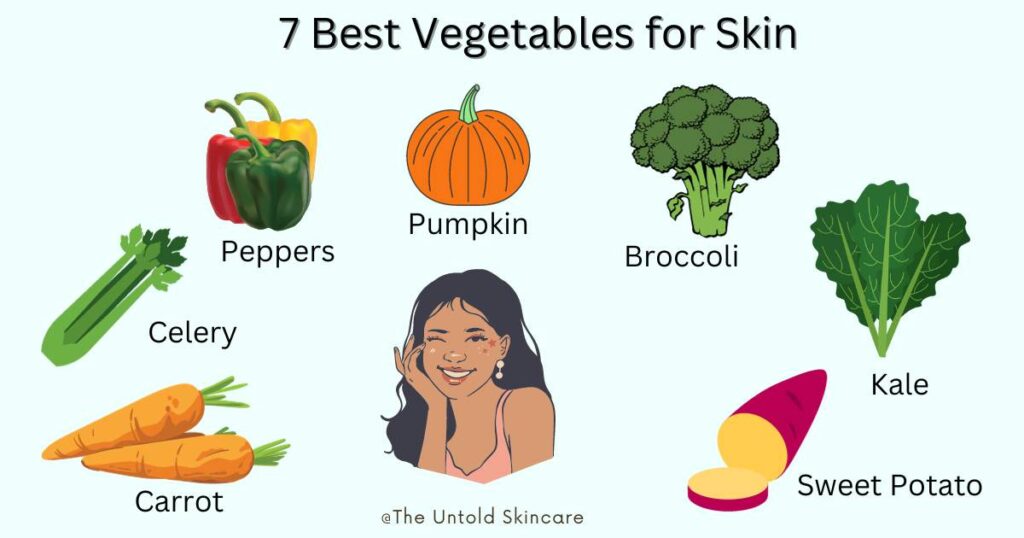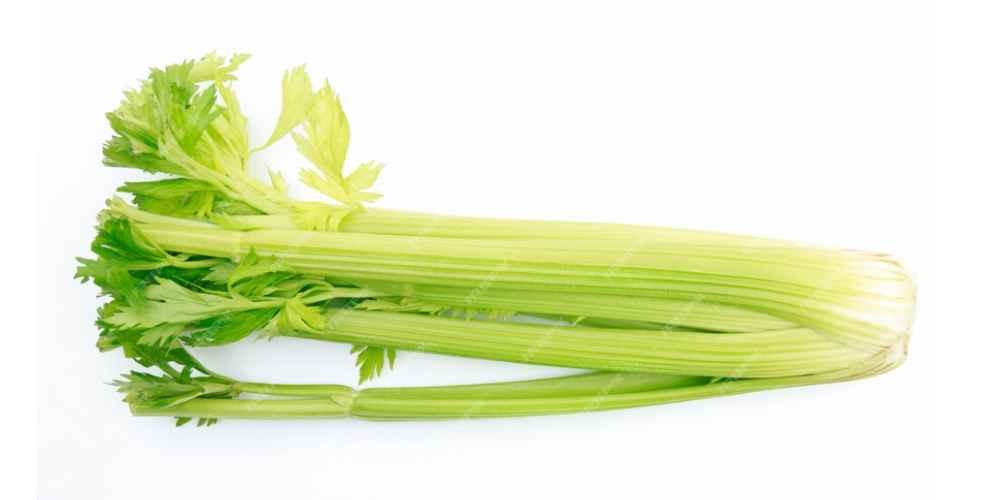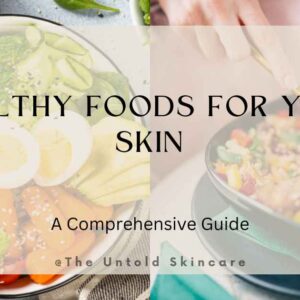In a world where skincare products flood the market, the answer to achieving radiant skin might just be in your kitchen.
But the struggle for flawless skin is real, with studies revealing that over 90% of people are dissatisfied with their skin at some point. The good news? Nature’s bounty, in the form of foods that we eat, often holds the key to unlocking that dream skin.
In this blog post, we will discuss one of those nature’s gifts –vegetables and talk about some of the best vegetables for skin and skin health. Vegetables are typically recognized as one of the healthiest dietary groups due to their high nutritional content and lower sugar level when compared to fruits.
Being the most common ingredient of our everyday meals, vegetables have a lot to offer, not just for our health but also for our skin.
This blog post is not just a mere list of vegetables but a comprehensive guide backed by science and nutrition. We’ll explore the top vegetables that have been scientifically proven to enhance skin health and combat common issues. Now, let’s get started.

Sweet Potato
Sweet potatoes offer several skin benefits due to their rich nutritional profile. The orange and purple varieties, in particular, are packed with vitamins and antioxidants that contribute to healthy skin.
Sweet potatoes are a potent source of beta-carotene, a precursor to Vitamin A. This vitamin is crucial for skin health as it promotes cell turnover and supports overall skin integrity.
A single sweet potato can offer a remarkable 100-200% of the daily recommended vitamin A intake.

Sweet potatoes are also rich in vitamin C, a collagen production powerhouse. With consistent consumption of sweet potatoes, you will notice your skin gaining a softer and smoother texture. The pesky fine lines that often come along with age may start to fade, lending your skin a more youthful appearance.
Another important nutrient present in sweet potatoes is Potassium. Potassium deficiency causes dry skin and it is abundant in sweet potatoes. So, consuming this healthy vegetable helps in keeping human skin moisturized.
Roasting, baking, or steaming are the best methods to eat sweet potatoes as it preserves their nutritional content. Try a simple sweet potato mash, add them to salads, or use sweet potato as a base for nourishing soups. Aim for a moderate daily intake, with one medium-sized sweet potato providing a substantial boost to your skin health.
Carrot
Considered one of the best vegetables for skin, carrots play a pivotal role in nourishing and revitalizing the skin. You just can’t skip carrots and I will tell you why.
Carrots are high in beta-carotene, a skin-friendly component that the body converts to vitamin A. It promotes skin tissue renewal and protects against the sun’s damaging rays. Antioxidants and carotenoids protect and condition the skin, improving its resilience to the sun and aiding in sunburn repair.

Carrot roots are high in flavonoids and phenolic derivatives, both of which act as antioxidants. They are anticarcinogenic and have the ability to reduce inflammatory insult and modulate immune response.
One main thing that makes carrots one of the best vegetables for skin is that they are high in dietary fiber & trace mineral molybdenum, which is uncommon in vegetables. Molybdenum is necessary for iron absorption & helps in fat & carbohydrate metabolism. Magnesium & manganese are also abundant in this vegetable.
Carrots are rich in potassium which can help in combating dry skin. Its antioxidants & phytochemicals also help control blood sugar and balance the insulin level of the body which ultimately balances the sebum production in the skin.
You can consume carrots raw as a crunchy snack, grated in salads, or cooked in soups and stews.
Pumpkin
Pumpkins, belonging to the gourd family, pack a punch in terms of nutritional benefits, particularly for skin health. Rich in vitamins, minerals, and antioxidants, pumpkins contribute to overall well-being, with notable advantages for the skin.
Pumpkin contains natural enzymes and alpha-hydroxy acids that help exfoliate dead skin cells, promoting a smoother complexion and aiding in cell turnover.

It is a rich source of vitamins A and C, known for their skin-rejuvenating properties. Vitamin A promotes skin cell renewal, while vitamin C contributes to collagen formation, enhancing skin elasticity and firmness. Additionally, pumpkins contain beta-carotene, a precursor to vitamin A, known for its ability to rejuvenate skin cells and contribute to a radiant complexion.
Pumpkin can help reduce skin oiliness, making it suitable for individuals with oily or acne-prone skin. It aids in regulating sebum production and maintaining balanced skin.
Roasting pumpkin slices, blending them into soups, or incorporating pumpkin puree into baked goods are excellent ways to enjoy their benefits.
Broccoli
Broccoli, a member of the Brassicaceae family, emerges as a nutritional powerhouse for healthy skin and is often considered as one of the best vegetables for skin. It is packed with essential nutrients such as fiber, antioxidants such as glucoraphanin, flavonoids, vitamins (A, C, K and B-group), carotenoids (lutein), and minerals such as potassium, selenium and iron.
The degradation product of glucoraphanin, sulforaphane (SF) has been studied to mitigate the effects of harmful UV radiation and also reduce the susceptibility of erythema. Similarly, lutein found in broccoli can effectively prevent the formation of wrinkles caused by UVB radiation while quercetin has been found to prevent collagen degradation.

Vitamin C, known for its collagen-boosting properties, enhances skin elasticity and combats the signs of aging, while vitamin K contributes to a more even skin tone. The iron content aids in oxygen transportation, promoting a healthy complexion and reducing the appearance of skin imperfections. It also protects the skin from getting infection as well as the neutral glow of your skin.
The best way to consume broccoli is either by cooking or by steaming. One cup of cooked broccoli or two cups of raw broccoli per day is a reasonable goal.
Additionally, I highly recommend you consume the younger leaves of broccoli as the antioxidants present in broccoli leaves contribute to decreased damage to cells and, especially, accelerate restoration of pancreatic cells and subsequently decrease blood glucose which further contributes to skin health.
Kale
With its nutrient density and skin-loving properties, kale stands as a green ally for anyone aspiring to achieve and maintain radiant, healthy skin. It can often be seen in the list of healthiest vegetables and is also considered as a “superfood” by many health experts.

Kale contains various phytochemicals, including polyphenols, vitamins C, E and A, SF, lutein, and β-carotene. It is also extremely rich in SF, thus providing intense protection against UV radiation. Regular consumption of kale can contribute to slowing down skin aging and reducing skin thinning.
Kale is also a rich source of antioxidants, which indicates its potential effectiveness in combating free radicals.
To harness kale’s benefits, include it in your diet through salads, smoothies, or sautés. Aim for a moderate daily intake with one to two cups of fresh kale in your meals.
Related Post: 6 Essential Nutrients for Healthy Skin
Peppers
Peppers, belonging to the Capsicum family, are not only culinary delights but also potent contributors to skin health. One interesting thing about peppers is that researchers have found them to hold all the best properties to be considered as food.
Peppers are low in calories and high in essential nutrients, making them a valuable addition to a skin-friendly diet. Rich in vitamin C, vitamin A, potassium, and folic acid, peppers provide a nutritional boost that supports overall skin wellness.

They are also rich in vitamin E and most B vitamins, in particular vitamin B5. They also are very high in potassium, magnesium, iron and rich in calcium and phosphorus.
The vibrant colors of peppers signify their antioxidant richness, which plays a crucial role in protecting the skin from oxidative stress. Antioxidants help combat free radicals, reducing signs of aging and promoting a youthful complexion.
Also, the vitamin C present is instrumental in collagen synthesis, promoting skin elasticity and resilience.
The best way to eat peppers is to eat them raw in salads or as a topping in your snacks.
Celery
Celery offers several skin benefits owing to its nutritional composition. Rich in water, vitamins, and antioxidants, celery can positively impact the skin in various ways.

Celery has an extremely high water content, aiding in skin hydration. Proper hydration is essential for maintaining skin elasticity, preventing dryness, and promoting a supple complexion
Rich in vitamin K, celery contributes to collagen synthesis. Moreover, its antioxidant properties, including compounds like luteolin, help combat free radicals, protecting the skin from oxidative stress and reducing signs of aging.
Whether consumed raw, added to salads, or blended into smoothies, the options are diverse. For optimal skin benefits, aim for at least one cup of celery daily.
Also Read: 7 Best Fruits for Skin Health
Frequently Asked Questions
1. Can we use a vegetable face mask?
Yes, you can. Cucumber and pumpkin face masks are the two popular vegetable-based face masks and are quite beneficiary as well.
2. What are the vegetables to avoid for skin health?
Eggplant and ladyfinger are two vegetables to avoid for skin health as they have been studied to cause inflammation and trigger acne.
3. What are the best vegetables for skin repair?
For skin repair, look for vegetables that are rich in vitamin A. So, the best vegetables for skin repair are carrots, pumpkins, and sweet potatoes.
4. What are the best vegetables for pimples?
The best vegetables for pimple-prone skin are broccoli, tomatoes, peppers, cucumbers, carrots and leafy greens.





